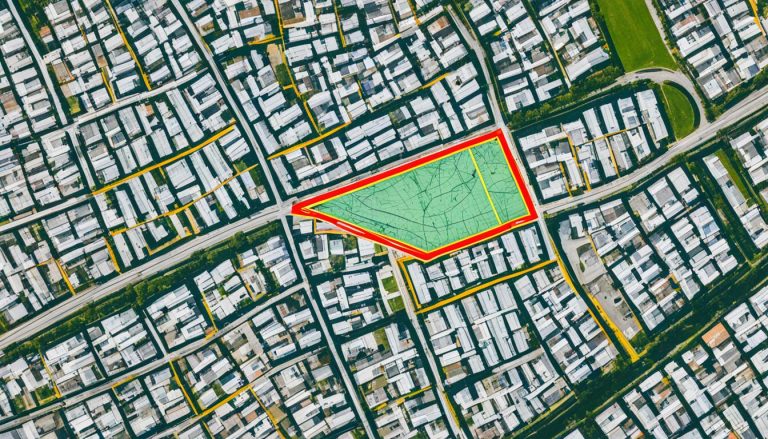Finding a place to call home can be challenging, especially in today’s housing market. Council housing offers an essential lifeline for many who struggle with rising rents and limited options. But you might wonder: who is eligible for council housing? Understanding the criteria for eligibility can help ease your journey towards securing a stable living environment.
In this article, we will break down what it takes to qualify for council housing and explore potential barriers that may affect your application. Whether you’re looking to rent due to financial constraints or simply need guidance on how the system works, we’ve got you covered. Let’s dive into the details that could make all the difference in your search for affordable accommodation.
How to Apply for Council Housing?

Applying for council housing is a straightforward process, but it requires careful preparation. The first step involves checking your eligibility based on factors like income, residency status, and specific housing needs. Most councils have detailed guidelines available on their websites to help you understand these criteria.
Once you confirm your eligibility, gather the necessary documents. This typically includes proof of identity, income details, and any information regarding your current living situation. Having everything ready can streamline the application process significantly.
Next, visit your local council’s office or their website to submit an application form. Some councils offer online applications for added convenience. Ensure that all sections are filled accurately to avoid delays or complications with your submission.
After submitting the application, keep track of its progress by staying in touch with the council’s housing department. They may request additional information or updates during this period to assess your case thoroughly.
Who is Eligible for Council Housing?
Council housing is designed to provide affordable accommodation for those in need. Eligibility criteria can vary depending on local council policies, but there are some common factors that most councils consider.
First, applicants typically need to be a resident of the area where they are applying. This ensures that support is given to local individuals and families who require assistance. Additionally, age matters; many councils prioritize applicants who are over 18 years old.
Another key aspect is income assessment. Those with low incomes or financial difficulties may qualify more easily than others. Applicants must demonstrate a genuine need for housing due to various circumstances such as overcrowding or homelessness.
Personal circumstances play an important role in eligibility. Factors like family size, health issues, and specific vulnerabilities will be taken into account when determining if someone qualifies for council housing assistance.
Who May Not Get the Council House?

There are specific circumstances that may prevent individuals from obtaining council housing. One of the primary reasons is having significant rent arrears. If a person has outstanding debts related to previous tenancies, it can hinder their chances of being offered a council house.
Another factor is antisocial behavior. Local councils take issues like harassment, violence, or persistent nuisances seriously. If there’s evidence of such behavior in past rental situations, it could lead to disqualification from receiving support for housing.
Homeowners generally do not qualify for council housing unless they face exceptional circumstances that significantly impact their living situation. Those who own property are expected to utilize their assets before seeking public assistance.
Even if an individual has stable employment, this alone does not guarantee access to council housing. The system prioritizes those with urgent needs and lower incomes over working professionals who might still be able to afford private rentals.
Rent Arrears
Rent arrears can significantly impact your eligibility for council housing. If you have accumulated unpaid rent on a previous tenancy, it may raise concerns during the application process. Councils typically assess your financial history to determine your suitability for public housing.
Having rent arrears indicates potential issues with managing finances or adhering to rental agreements. This can lead councils to prioritize applicants who demonstrate a stable payment record and responsible renting behavior. You’ll need to provide evidence of efforts made to address any outstanding debts.
If you’re struggling with payments, it’s advisable to communicate with your landlord as soon as possible. Many landlords appreciate open communication and may offer repayment plans or support options that could help clear arrears without jeopardizing future housing applications.
Resolving any existing rent arrears is crucial if you wish to improve your chances of securing a council house in the future. Addressing these issues proactively shows responsibility and commitment toward maintaining a stable living situation.
Antisocial Behaviour

Antisocial behaviour can significantly impact eligibility for council housing. This term refers to actions that cause harassment, alarm, or distress to others. Examples include noisy parties, vandalism, and persistent disruptive behaviour. Such conduct affects not only individuals but also entire communities.
Local councils take reports of antisocial behaviour seriously. They often investigate claims thoroughly before making decisions on housing applications. If you have a history of causing disturbances or complaints against you from neighbours, your application may be scrutinized more closely.
Moreover, ongoing issues could lead to eviction from current council properties as well. Councils aim to maintain safe and peaceful environments for all residents, so they won’t hesitate to act against those who disrupt the community.
If you’ve had previous concerns regarding antisocial behaviour in your past or present living situation, it’s crucial to address these matters proactively before applying for council housing. Taking steps towards positive change can make a difference in how your application is perceived.
Homeowners
Homeowners typically do not qualify for council housing. This is because council housing aims to support those in need of affordable accommodation. If you already own a property, your financial situation may be viewed as more stable than that of renters or the homeless.
However, there are exceptions under specific circumstances. For example, if homeowners face severe financial hardship or medical issues that prevent them from maintaining their home, they might still be considered for assistance. Each case is evaluated on an individual basis.
It’s also essential to note that local authorities have various criteria when assessing applications. They will consider factors like income and personal circumstances before making a decision.
If you’re unsure about your eligibility due to homeownership, it’s always best to contact your local council directly. They can offer guidance tailored to your situation and provide clarity on available options for housing support.
Can I Get a Council House if I Have a Job?
Having a job does not automatically disqualify you from obtaining council housing. In fact, many working individuals are eligible for social housing. Your income is taken into consideration, but it doesn’t mean you won’t qualify if you’re employed.
Local councils assess applications based on various criteria, including your financial situation and housing needs. If your earnings fall within certain limits set by the council, you may still be able to access affordable housing options. It’s important to check specific thresholds in your area.
Moreover, having stable employment can sometimes strengthen your application. It shows that you have a reliable source of income to contribute towards rent payments or other living expenses associated with moving into a council home.
Keep in mind that each local authority has its own policies and eligibility requirements. Therefore, make sure to investigate what applies specifically to where you’re looking to apply for council housing.
Will There Be a Waiting List?

When applying for council housing, many applicants wonder about the waiting list. The reality is that demand often exceeds supply in most areas. This means that you may find yourself on a waiting list after submitting your application.
The length of the wait can vary significantly. In some regions, it could take just a few months to secure a property, while in others, it might stretch into several years. It largely depends on local housing needs and how many properties are available.
Prioritization plays an essential role as well. Those with urgent housing needs—such as families facing homelessness or individuals living in unsuitable conditions—are likely to be placed higher on the list. Factors like medical requirements or financial hardship also influence prioritization.
Regular updates from your local council can provide insight into your position on the list and expected timeframes for allocation. Staying informed will help manage expectations during this process.
Conclusion
Understanding who is eligible for council housing is crucial for those seeking affordable accommodation. The process can feel overwhelming, but knowing the requirements helps simplify your journey.
Eligibility typically revolves around various factors such as residency status, income level, and specific needs like disability or family size. Council housing aims to support those in need, ensuring everyone has access to safe and secure living conditions.
Keep in mind that there are certain circumstances that may affect eligibility. Factors like rent arrears or previous antisocial behavior can disqualify applicants. Even homeowners might find themselves ineligible if they have assets that exceed a predetermined threshold.
FAQ
What is council housing?
Council housing refers to affordable rental accommodations provided by local councils to individuals and families in need. It offers a valuable option for those facing financial challenges or housing instability.
How is the waiting list prioritized?
Prioritization typically depends on the urgency of housing needs. Factors like homelessness, unsafe living conditions, medical requirements, and financial hardship will elevate certain applicants’ positions on the list.
How does antisocial behaviour affect my application?
A history of antisocial behaviour can hinder your chances of securing council housing. Councils take such reports seriously and may conduct thorough investigations. Demonstrating positive changes and responsible behaviour before applying can help mitigate past issues.
What should I do if I’m a homeowner?
Homeowners typically do not qualify for council housing unless they are facing exceptional circumstances. If you’re unsure about your situation, it’s best to directly contact your local council for guidance.
Is assistance available for handling rent arrears?
If you’re struggling with rent payments, communicate with your landlord about potential repayment plans or support options. Proactively addressing rent arrears demonstrates responsibility and can enhance future housing applications.
How can I stay informed about my application status?
Regular contact with your local council’s housing department will keep you updated on your application status and any expected timeframes for allocation.






